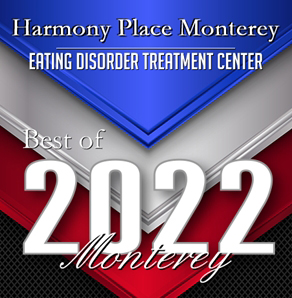Intimacy issues can make it challenging for men or women to form close, meaningful relationships with others.
The problem can affect all aspects of the relationship, from an emotional connection to physical contact and sexual activity. Humans have an innate instinct to bond with another person on an intimate level. At the same time, those with intimacy issues can fear the act of bonding, causing them to avoid it at all costs. Some fear they may be rejected or abandoned by their significant other. Even when close to another person, an individual with intimacy issues may feel isolated as they are unable to experience a profound sense of connection with that person.
At Harmony Place Monterey, we work closely with our clients to carefully address their intimacy issues. Dr. Mark Schwartz has worked alongside many child development researchers in his career and has developed a deep curiosity and passion for what it is that shape people in adulthood and more specifically, in relationships. Through his studies, he realized that intimacy disorders are long-standing patterns that have been hardwired into an individual’s brain due to various events that may have occurred during childhood.

Photo by Abigail Lynn
Intimacy Disorders, Sexual Disorders and Sexual Addiction
Intimacy Disorders
Those with an intimacy disorder do not know how to relate to another person in an intimate relationship in a healthy and comfortable manner. While those individuals crave and need the closeness of a special relationship, they are unable to cultivate the bond necessary for it to form. Attachment trouble is usually at the core of intimacy disorders, which may be due to a relationship or event that occurred during childhood. By identifying the attachment problem and addressing it, we can open up the person to a greater sense of connection with another person to improve the quality of life for both individuals.
Sexual Disorders
Sexual disorders often prevent couples from having the intimately fulfilling relationships they want. These issues are often rooted in seemingly unconnected childhood experiences, such as a severe sense of powerlessness, abuse or neglect, or a traumatic event. Other mental health disorders, such as depression, anxiety or bipolar-like mood swings can also contribute to the problem. Like other types of intimacy disorders, our team of professionals strives to identify the underlying issues so they can be properly addressed to help the individual overcome the sexual dysfunction.
Sexual Addiction
Sexual addiction is also referred to as sexual compulsion, and it falls under the category of intimacy disorders because those who are addicted to sexual behavior are unable to form lasting, meaningful relationships with others as a rule. Sexual addiction may encompass the following behaviors:
- Pornography – the ability to view pornography on the Internet anonymously has increased the amount of this type of sexual addiction exponentially
- Affairs – affairs while an individual is involved in a single intimate relationship can lead to distrust, anger and other fallout with the partner
- Paraphilia – atypical sexual arousal patterns, such as fetishes, transvestism and an attraction to violence, can also interfere with healthy intimate relationships
You don’t have to live a life without meaningful intimate relationships. Let us help you rebuild your ability to bond with others by identifying and working you through the underlying problems that have led to the intimacy issues. To learn more about our treatment programs, contact Harmony Place Monterey today at 831 747 1727.





